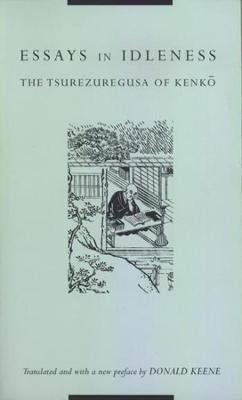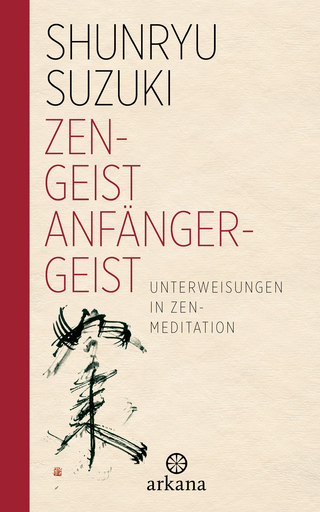
Essays in Idleness
The Tsurezuregusa of Kenkō
Seiten
1998
|
With a New Preface
Columbia University Press (Verlag)
978-0-231-11255-0 (ISBN)
Columbia University Press (Verlag)
978-0-231-11255-0 (ISBN)
The Buddhist priest Kenko clung to tradition, Buddhism, and the pleasures of solitude, and the themes he treats in his Essays, written sometime between 1330 and 1332, are all suffused with an unspoken acceptance of Buddhist beliefs.
Despite the turbulent times in which he lived, the Buddhist priest Kenko met the world with a measured eye. As Emperor Go-Daigo fended off a challenge from the usurping Hojo family, and Japan stood at the brink of a dark political era, Kenko held fast to his Buddhist beliefs and took refuge in the pleasures of solitude. Written between 1330 and 1332, Essays in Idleness reflects the congenial priest's thoughts on a variety of subjects. His brief writings, some no more than a few sentences long and ranging in focus from politics and ethics to nature and mythology, mark the crystallization of a distinct Japanese principle: that beauty is to be celebrated, though it will ultimately perish. Through his appreciation of the world around him and his keen understanding of historical events, Kenko conveys the essence of Buddhist philosophy and its subtle teachings for all readers. Insisting on the uncertainty of this world, Kenk? asks that we waste no time in following the way of Buddha. In this fresh edition, Donald Keene's critically acclaimed translation is joined by a new preface, in which Keene himself looks back at the ripples created by Kenk?'s musings, especially for modern readers.
Despite the turbulent times in which he lived, the Buddhist priest Kenko met the world with a measured eye. As Emperor Go-Daigo fended off a challenge from the usurping Hojo family, and Japan stood at the brink of a dark political era, Kenko held fast to his Buddhist beliefs and took refuge in the pleasures of solitude. Written between 1330 and 1332, Essays in Idleness reflects the congenial priest's thoughts on a variety of subjects. His brief writings, some no more than a few sentences long and ranging in focus from politics and ethics to nature and mythology, mark the crystallization of a distinct Japanese principle: that beauty is to be celebrated, though it will ultimately perish. Through his appreciation of the world around him and his keen understanding of historical events, Kenko conveys the essence of Buddhist philosophy and its subtle teachings for all readers. Insisting on the uncertainty of this world, Kenk? asks that we waste no time in following the way of Buddha. In this fresh edition, Donald Keene's critically acclaimed translation is joined by a new preface, in which Keene himself looks back at the ripples created by Kenk?'s musings, especially for modern readers.
Donald Keene is Shincho Professor of Japanese Literature and University Professor Emeritus at Columbia University. He is the author of more than thirty books, including So Lovely a Country Will Never Perish: Wartime Diaries of Japanese Writers; Chronicles of My Life: An American in the Heart of Japan; Frog in the Well: Portraits of Japan by Watanabe Kazan, 1793-1841; and Emperor of Japan: Meiji and His World, as well as a definitive multivolume history of Japanese literature.
Preface to the Second Paperback Edition Foreword, by William Theodore de Bary Preface Introduction Essays in Idleness Selected Bibliography Index
| Erscheint lt. Verlag | 6.5.1998 |
|---|---|
| Reihe/Serie | Translations from the Asian Classics |
| Übersetzer | Donald Keene |
| Verlagsort | New York |
| Sprache | englisch |
| Maße | 127 x 221 mm |
| Themenwelt | Geisteswissenschaften ► Religion / Theologie ► Buddhismus |
| ISBN-10 | 0-231-11255-6 / 0231112556 |
| ISBN-13 | 978-0-231-11255-0 / 9780231112550 |
| Zustand | Neuware |
| Haben Sie eine Frage zum Produkt? |
Mehr entdecken
aus dem Bereich
aus dem Bereich
Philosophische Betrachtungen
Buch | Softcover (2024)
Aufbau TB (Verlag)
12,00 €
Unterweisungen in Zen-Meditation
Buch | Hardcover (2024)
Arkana (Verlag)
20,00 €


